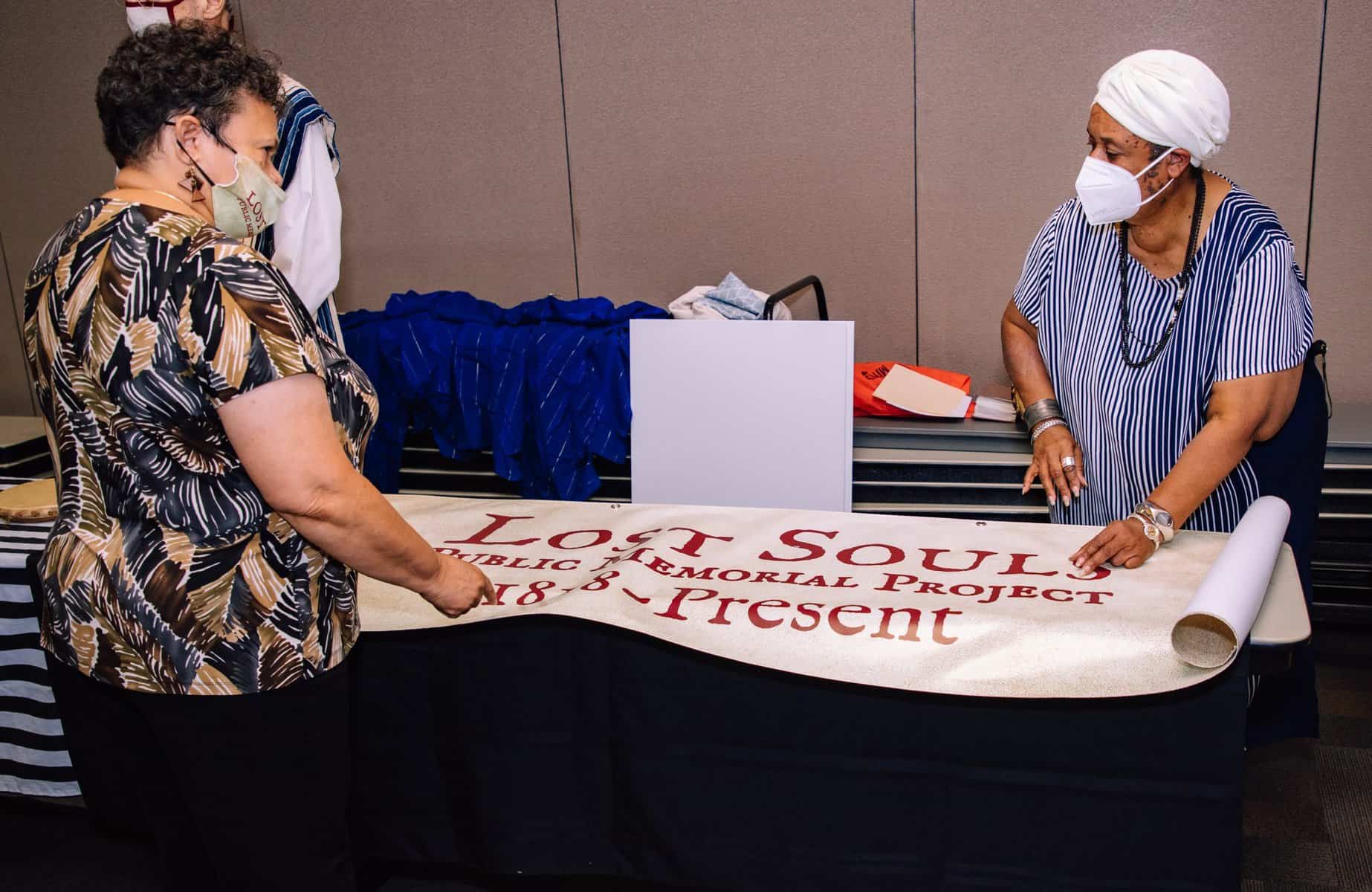EAST BRUNSWICK – On Sept. 12, in a conjoined meeting room within the East Brunswick Public Library, organizers and guests gathered for a presentation on the Lost Souls Public Memorial Project, a grassroots movement dedicated to honoring the 137 African Americans sold into slavery in 1818 by Jacob Van Wickle, a corrupt Middlesex County judge.
According to the project, Van Wickle abused his authority to operate an illegal slave trading ring from February to October 1818, using his home as a makeshift detainment center for captured salves. Through a nefarious network of conspirators, African Americans, both enslaved and free, were transported through the ports of Perth Amboy into the Deep South. During this period, five separate groups were displaced from freedom into permanent slavery, resulting in the lost humanity of 137 individuals.
For the Lost Souls Public Memorial Project, the mission is to restore their humanity by not just remembering the names of the 137 “lost souls,” but by commemorating their lives. To accomplish this, a memorial is planned to be constructed at the entrance of the East Brunswick Community Arts Center.
In addition, the project also intends to increase public awareness about the historical timeline of these events and those involved, both as perpetrators and liberators.
Kristal Langford, the adjunct professor of Psychology & Africana Studies at William Paterson University, presented a brief history of the events and emphasized the importance of responsibility and accountability through education.
“In reality, when we went to school, we really didn’t learn about New Jersey’s role or the North’s role in slavery … because we, in a sense, absolve ourselves of the responsibility of enslaving. So, we make it a South problem … we saw common themes across the State of New Jersey with different judges, not just Judge Jacob Van Wickle, but different judges actually participated in this nefarious business,” Langford said.
After discovering that the project was interested in developing an in-depth curriculum based around the history, she applied for and was ultimately selected to create it.
As she delved into the history, she became deeply intrigued by experiences of the 137 Lost Souls.
“I wanted to do justice because I know I’m a descendant of enslaved people, my family is from Haiti. When I became involved in this work it became deeply personal. Although I was brought on to just develop the curriculum, I just can’t present this and step away. As I was doing it, I became very invested in the humans. I wanted to see, I wanted to feel, I wanted to hear about what others were saying about what these individuals did,” Langford said.
The Rev. Karen G. Johnston, the settled minister at The Unitarian Society of East Brunswick, shared similar sentiments after she learned about a local street sign named after Van Wickle. This prompted her to conduct further research to not only learn why it was there, but to understand the history behind it.
“I learned about the presence in East Brunswick of a street sign named after this corrupt judge who had been the head of a slave ring. … I knew I that I needed to tell my congregation and I needed to learn from other people and I asked to meet Mavonia, who’s been a long time resident of East Brunswick, to find out what was to be done,” Johnston said.
Maevonia Caldwell, a member of East Brunswick’s Commission on Aging, suggested that this history and these people should be remembered with a reverence like any other historical tragedy that has occurred in the United States.
“History is important. It matters. Correct history matters even more. … It’s important that we remember yesterday, it’s important that we remember Black yesterday and Black presence and Black future. … We hope people are educated, we hope people will care about it and feel like there’s still something we can do. We can’t just say, ‘I wasn’t here and so it’s not my problem.’ We’re all responsible. Once we know better, we do better,” she said.
Although a reveal date has not been specified for the construction of the memorial, anyone interested in supporting the project is encouraged to donate at lostsoulsmemorialnj.org, where more information can be found.

